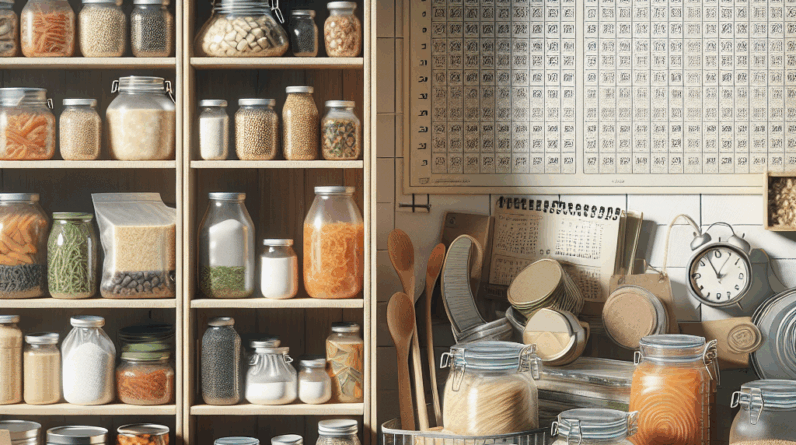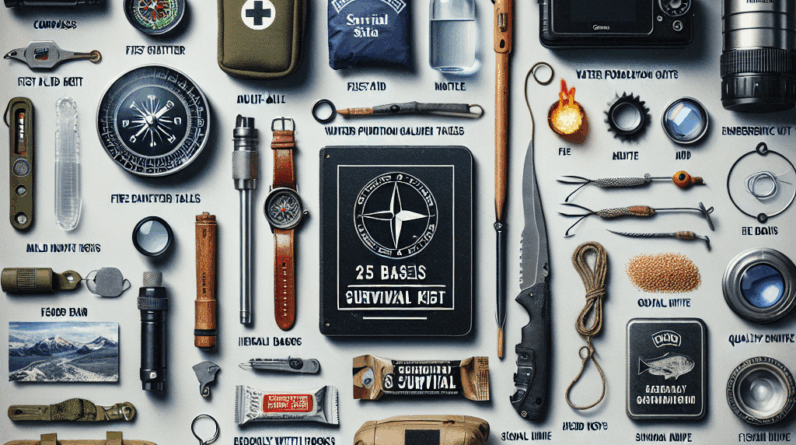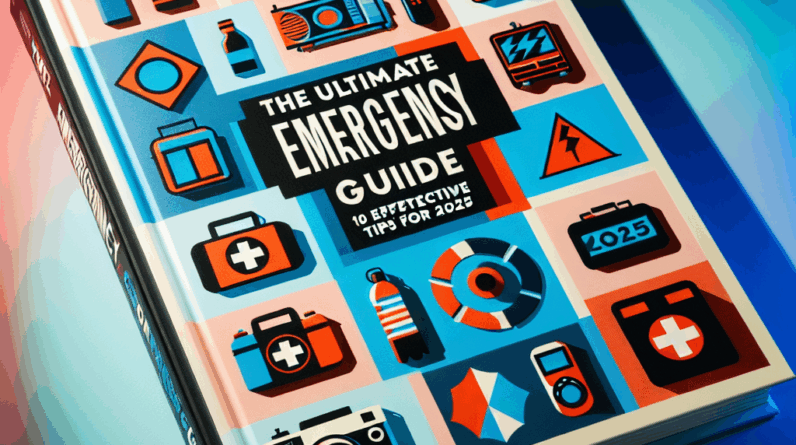Navigating long-term disaster scenarios requires more than just a survivalist mindset; it demands a strategic approach to health and well-being. In this guide, we’ll explore comprehensive strategies to maintain your health, manage resources, and stay mentally strong when facing extended challenges.
Maintain a Balanced Diet
# Understanding Nutritional Needs
When faced with a long-term disaster scenario, the first step is to assess your dietary needs thoroughly. It’s tempting to stockpile canned foods or easily accessible items, yet these may not meet your nutritional needs over time. Understanding the essential nutrients your body needs is crucial for maintaining health. Aim to include a diverse array of food groups in your diet, ensuring a balance of proteins, fats, carbohydrates, vitamins, and minerals. This may involve combining regular food items with emergency supplies. Awareness of your nutritional needs helps you avoid resorting to junk food simply because it’s available.
Consider portion control as well. In times of limited food supply, it’s important to eat regular, balanced meals rather than consuming your stores all at once or skipping meals. This helps maintain your energy levels and keeps morale high.
# Smart Food Storage
Proper food storage is essential for longevity and utility. A disorganized pantry can lead to unnecessary waste. Utilize airtight containers, label items clearly with expiration dates, and maintain a detailed inventory. This prevents the common pitfall of forgetting what you have stored. If possible, consider learning how to can or dehydrate food. These methods not only extend the shelf life of your supplies but also reduce the need for refrigeration, which can be invaluable during power outages.
Regularly rotating your food supply ensures that you use older items first and nothing goes to waste. This practice supports both balanced nutrition and good hygiene in difficult times.
# Hydration is Key
Never underestimate the importance of staying hydrated, especially under stressful conditions. Water is essential not just for satiety but for optimal body function. Always have reliable water purification methods ready, such as filters or purification tablets, to ensure access to safe drinking water even if your primary water source is compromised.
Investing in high-quality water containers is beneficial, ensuring you have enough safe water to keep everyone hydrated. If energy levels begin to wane, consider using electrolyte solutions or powders to replenish and maintain normal body functions, especially during increased physical activity.
Physical Activity and Mental Wellbeing
# Establish a Routine
Establishing a daily routine can significantly aid in coping with prolonged stress and uncertainty. Structure your day to include tasks related to survival as well as activities that foster physical and mental health. Starting your day with simple stretches or any form of exercise can positively impact your mood and outlook.
Incorporate physical activities like yoga, calisthenics, or walking to stimulate blood circulation and mental alertness. Keeping physically active also plays a crucial role in managing mental stress, reducing feelings of anxiety and frustration.
# Connect with Others
Building a community during a crisis can be immensely beneficial. Engaging with others who are facing similar challenges can provide mutual support and significantly lift spirits. Whether it’s collaborating on survival techniques or simply sharing meals, social interactions can enhance your emotional well-being.
Participate in support groups and online forums where experiences and resources can be shared. These connections not only help in maintaining mental resilience but also foster a sense of solidarity.
# Mental Health Practices
Mental health is just as important as physical health during a crisis. Engage in practices like journaling and mindfulness to manage stress and clear your mind. These activities provide a means to express and process emotions, facilitating better mental health management.
Utilize Available Resources Wisely
# Research and Educate Yourself
Preparation involves understanding what resources are available locally and online. Taking time to learn essential skills such as first aid and basic survival techniques can significantly enhance your preparedness. Local libraries and community centers can be invaluable sources of information and training.
# Sharing and Trading Resources
If you have surplus supplies, consider bartering with others. This can lead to useful exchanges that benefit all parties involved. Openness to cooperation can lead to unexpected opportunities and solutions.
# Stay Informed on Health Guidelines
Keep abreast of health guidelines from reliable sources like the CDC and WHO. Changes in guidelines can directly impact your safety and health strategies during a disaster. Engage with local health professionals for tailored advice and support.
Maintain Hygiene and Health Practices
# Basic Hygiene Techniques
Basic hygiene is fundamental in preventing illness. Regular handwashing, maintaining clean living spaces, and using natural cleansers like vinegar or baking soda when necessary are critical practices.
# Monitor Health Conditions
Keep a close watch on any existing health conditions and maintain a well-stocked first aid kit. Being aware of your body’s signals and taking appropriate actions can prevent minor health issues from escalating.
# Stay Prepared for Medical Emergencies
Have a plan for medical emergencies, including how to reach medical facilities and recognizing symptoms that require immediate attention. Sharing your plans with your support network can enhance safety for everyone involved.
FAQs About Staying Healthy During Long-Term Disaster Scenarios
# 1. What should I prioritize in my diet during a disaster?
Focus on a balanced diet that includes proteins, carbohydrates, fats, vitamins, and minerals. Ensure you include various food groups and manage portion sizes effectively.
# 2. How can I stay active without access to a gym?
Engage in simple exercises like bodyweight routines, yoga, or walking. Establish a routine that includes physical and mental activities.
# 3. What should I do if I experience mental health struggles during a disaster?
Express your feelings through journaling, talking, or mindfulness practices. Such activities help in managing stress and maintaining mental health.
# 4. How do I keep track of my health supplies?
Maintain a detailed inventory of your medications and first aid supplies, and ensure you monitor stock levels regularly.
# 5. What are some essential hygiene practices?
Regular handwashing, cleaning living spaces, and organizing personal items are crucial for maintaining good health.




